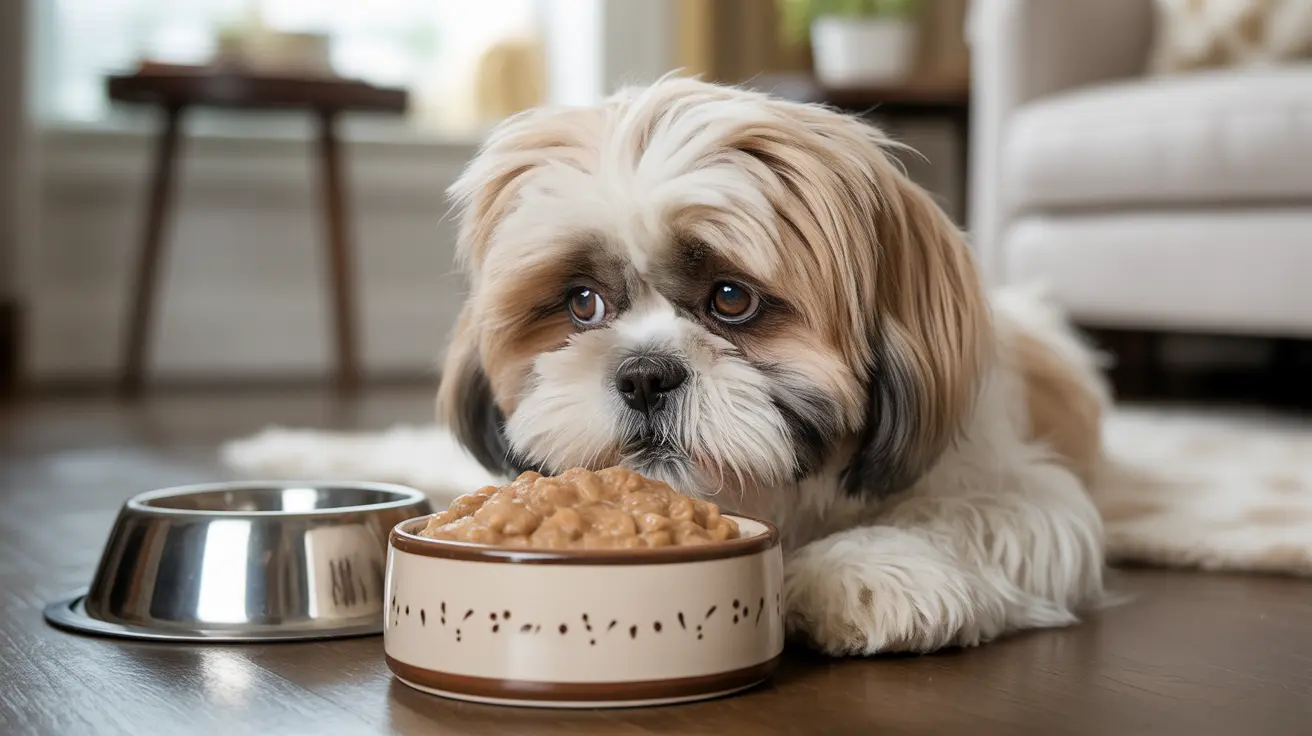When your 15-year-old dog stops eating but continues drinking water, it's a concerning situation that requires careful attention. This behavior change in senior dogs often signals underlying health issues that need veterinary evaluation. Understanding the potential causes and knowing when to seek help can make a crucial difference in your elderly pet's well-being.
In this comprehensive guide, we'll explore the common reasons behind this behavior, identify warning signs, and provide practical solutions to help your aging companion regain their appetite while maintaining proper hydration.
Common Medical Causes for Loss of Appetite in Senior Dogs
Dental Disease and Oral Health Issues
Dental problems are among the most frequent causes of appetite loss in elderly dogs. Painful conditions like loose teeth, gum disease, or oral infections can make eating uncomfortable while not affecting water consumption. Regular dental check-ups become increasingly important as dogs age to prevent these issues.
Organ Disease and Metabolic Disorders
Kidney disease, liver problems, and diabetes commonly affect senior dogs, often leading to decreased appetite while maintaining or increasing thirst. These conditions require prompt veterinary attention and ongoing management to ensure your pet's health.
Physical and Environmental Factors
Mobility and Pain Issues
Arthritis and joint problems can make it difficult for senior dogs to reach their food bowls comfortably. While they might still manage to drink water, the physical effort required for eating might be too challenging. Consider raising food bowls and providing easily accessible feeding stations.
Changes in Environment
Senior dogs can be sensitive to changes in their surroundings. New pets, moving homes, or alterations in daily routines might affect their eating habits. Maintaining consistency and creating a calm feeding environment can help encourage regular eating.
When to Seek Immediate Veterinary Care
Contact your veterinarian immediately if your senior dog:
- Hasn't eaten for more than 24-48 hours
- Shows signs of lethargy or depression
- Experiences vomiting or diarrhea
- Exhibits significant weight loss
- Shows signs of dehydration despite drinking water
Practical Solutions to Encourage Eating
Dietary Modifications
Consider switching to soft food or adding warm water to kibble to make it more appealing and easier to eat. Some seniors respond well to home-cooked meals (approved by your vet) or specialized senior dog foods.
Feeding Schedule Adjustments
Offer smaller, more frequent meals throughout the day. Some senior dogs may find it easier to manage several small portions rather than larger meals.
Frequently Asked Questions
Why has my 15-year-old dog stopped eating but is still drinking water?
This behavior can result from various issues including dental problems, organ disease, pain, or age-related changes in metabolism. A veterinary examination is necessary to determine the specific cause.
What health problems can cause a senior dog to lose appetite but keep drinking?
Common health issues include dental disease, kidney problems, liver disease, diabetes, cancer, and gastrointestinal disorders. Each condition requires different treatment approaches.
How can I tell if dental disease is making my senior dog avoid food?
Look for signs such as bad breath, bleeding or swollen gums, visible tartar on teeth, drooling, or pawing at the mouth. Your dog might also show preference for soft foods over hard kibble.
When should I take my senior dog to the vet if they stop eating but keep drinking?
Seek veterinary care if your dog hasn't eaten for more than 24-48 hours, shows signs of illness, or experiences significant behavioral changes. Early intervention often leads to better outcomes.
What can I do at home to encourage a senior dog who won't eat but drinks water?
Try warming their food, offering wet food alternatives, hand-feeding, or adding low-sodium broth to their meals. Ensure food bowls are easily accessible and consider appetite stimulants prescribed by your vet.
Conclusion
While it's concerning when a senior dog stops eating but continues drinking water, understanding the potential causes and taking prompt action can help resolve the issue. Always consult with your veterinarian to determine the underlying cause and develop an appropriate treatment plan for your aging companion.






